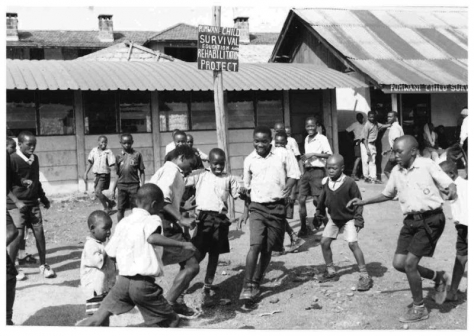
A friend of mine recently posted on social media a picture of a book he saw on sale on the streets.
The book, according to its title, told the story of how various tribes ended up specialising in certain trades. Seriously?
The post made me wonder what had become of this generation. I miss the good old days when people were not tribal.
As young kids growing up in the estate, we mingled freely without a care in the world. While I don’t dispute the fact that some of our parents and relatives may have been tribal, the kids belonged to one tribe, Sheng.
Today, most of us cannot fluently speak our mother tongues properly because, back then, life was all about communicating in Sheng and English. In fact, we used our first names most of the time and had no idea our surnames ‘betrayed’ our tribes.
I grew up in Buru, where most of my childhood was spent fighting chaps from Jericho - who felt we were softies. It was not tribal.
Our houses were designated by the courts, which we used to refer to as ‘rounder.’ There was only one family that looked a little different from the rest - they had curly hair and were light-skinned. They also kept chihuahuas, which to us were a bunch of dwarf dogs - Jericho chaps were used to huge mongrels, which we would chase across the streets for no apparent reason.
This interesting family had three famous brothers - Shabu, Zingich (who made sure every one got the right pronunciation of my name Bolingo) and their footballer, brother, Tostao. I still think they were Bajunis from the coast.
Such was life in ‘tribeless’ Buru. Today, the bulk of my close friends are not even from Western Kenya.
I cannot imagine fighting or hating my friends from other tribes, especially when I remember the way we used to go hunting together for aluru (quail) and risky swimming adventures in quarriwa (duff mpararo).
We would share whatever was left of our supper with friends without caring which tribe they came from. This was common during chapo days. Not everyone ate chapo at the time, it was that rare.
It was not uncommon to bump on twenty of us sharing Patco sweets on the streets. Five cents would get us two of such.
In school, there were only two tribes: students and teachers. Like a united team, we would do anything together to save our skins and those of our friends from the ever present wrath of strict teachers.
We would laugh at teachers who had the tendency to shrub, but we never went into details to identify them with certain tribes. Additionally, the public education system discouraged tribalism. For instance, you would find that more than half the students in Garbatula, Garissa, came from other provinces.
In college, when we started the business of meeting girls, 90 per cent of us never cared about their tribes. Compatibility was more important. This explains why most of my agemates intermarried.
The government should do away with the quota system in school selection as it has advanced tribalism. Instead of wasting your energy on rage and tribal issues, concentrate on building the bridges as you may need the person you are hating on in future.
This generation must not forget that there are only two tribes in Kenya; the rich and the poor.
@AineaOjiambo
 The Standard Group Plc is a multi-media organization with investments in media
platforms spanning newspaper print
operations, television, radio broadcasting, digital and online services. The
Standard Group is recognized as a
leading multi-media house in Kenya with a key influence in matters of national and
international interest.
The Standard Group Plc is a multi-media organization with investments in media
platforms spanning newspaper print
operations, television, radio broadcasting, digital and online services. The
Standard Group is recognized as a
leading multi-media house in Kenya with a key influence in matters of national and
international interest.









